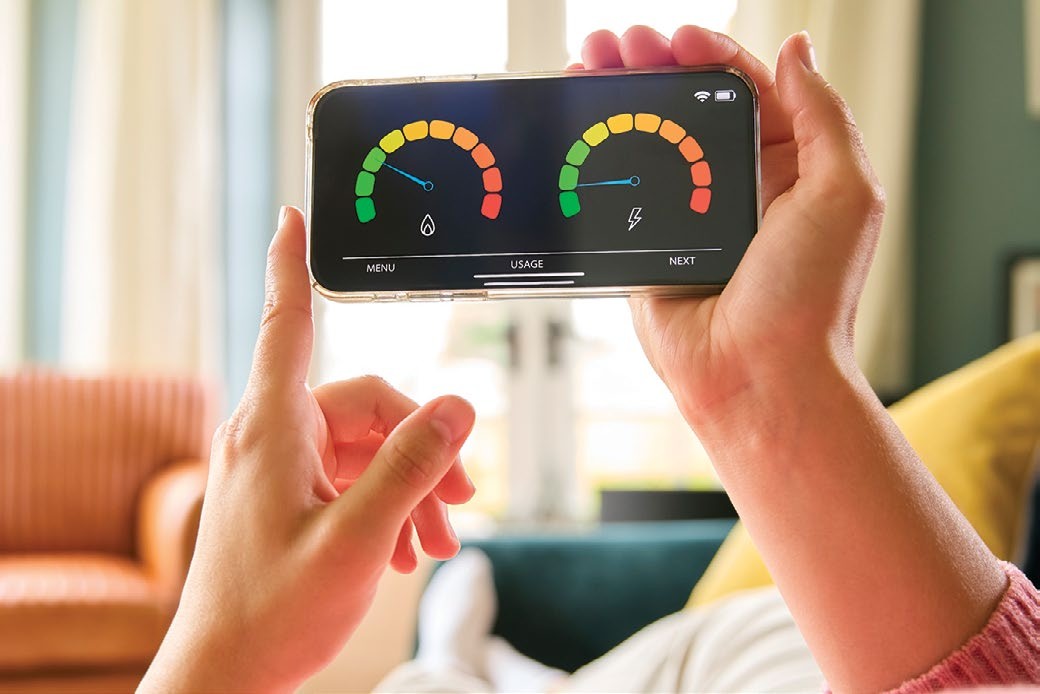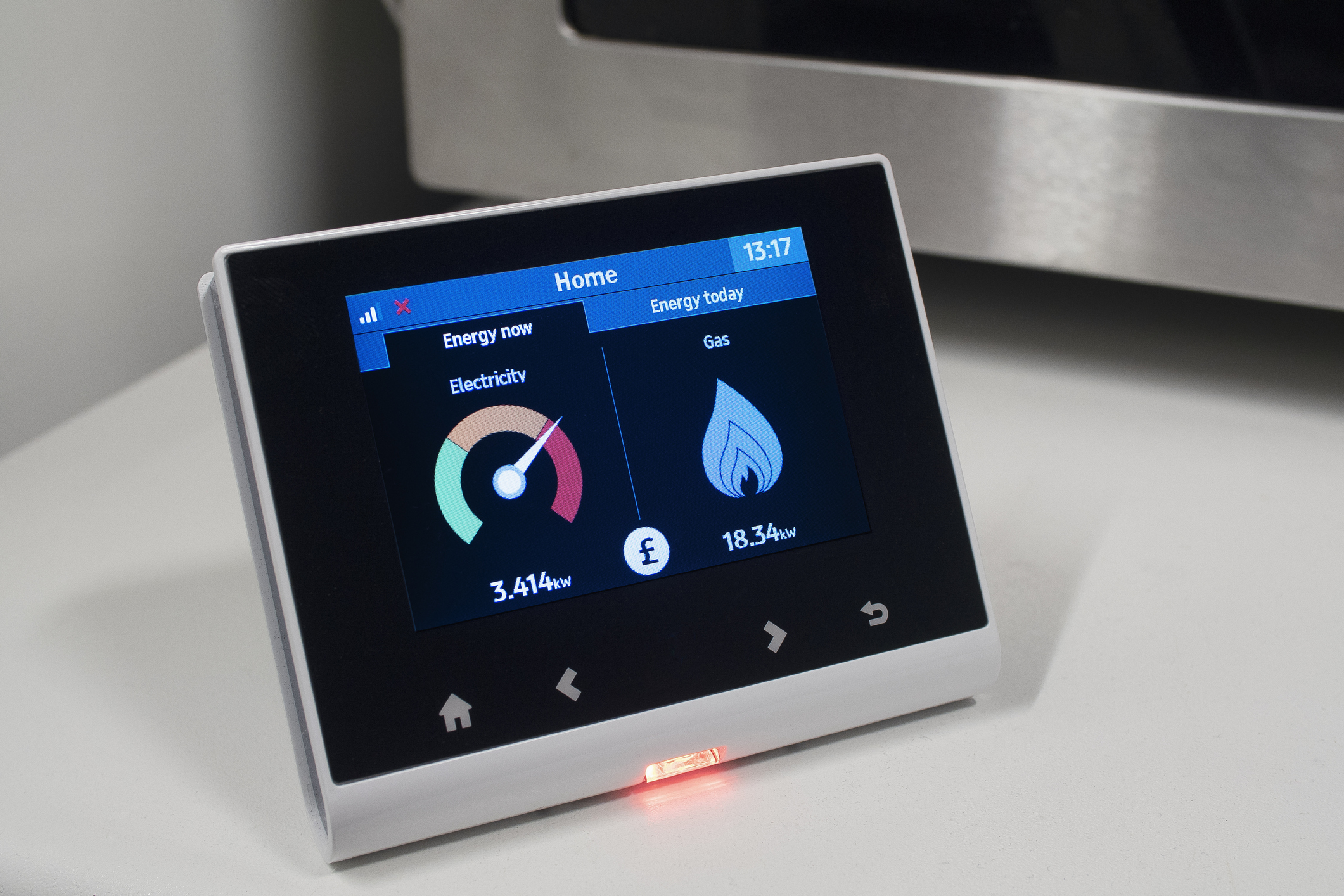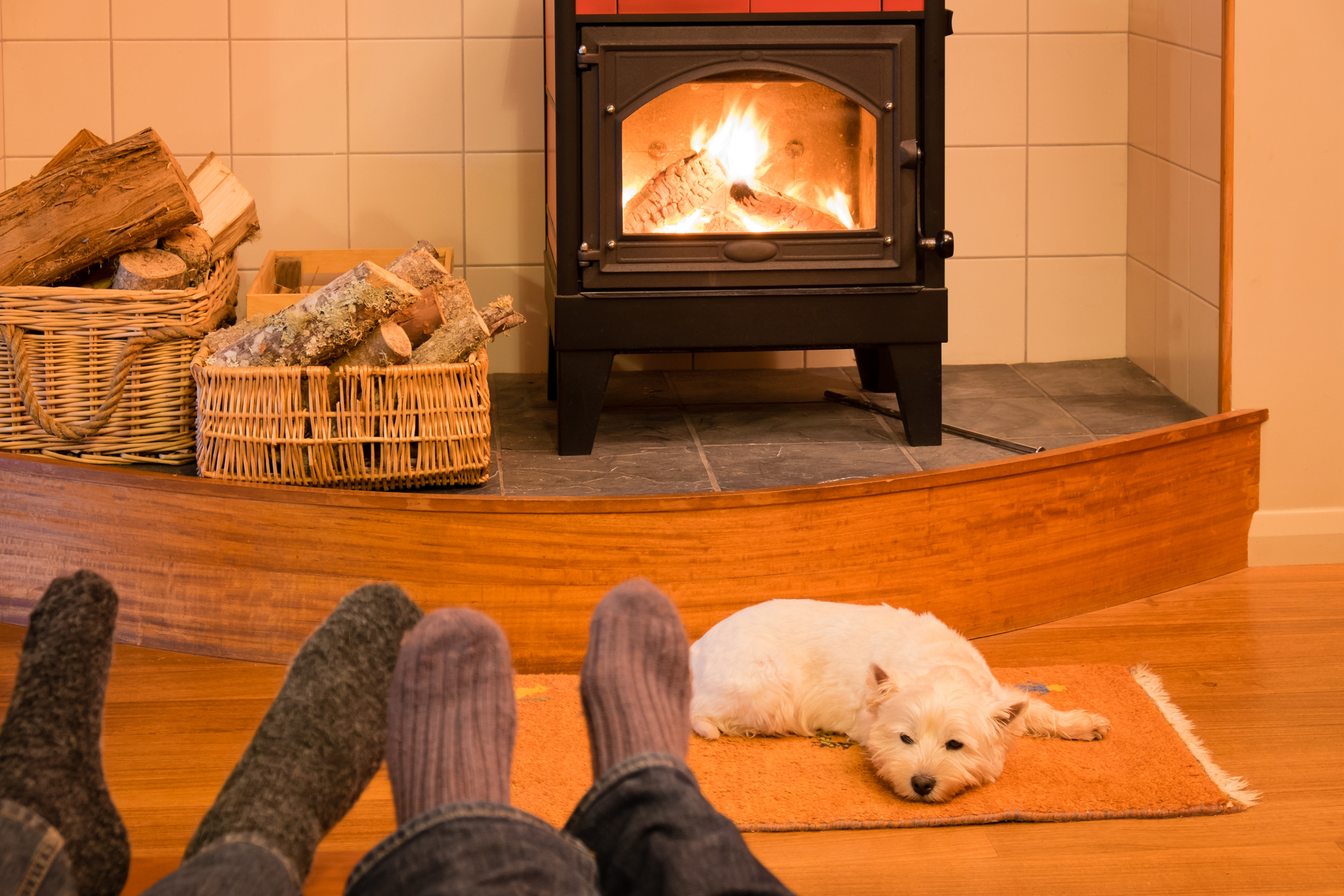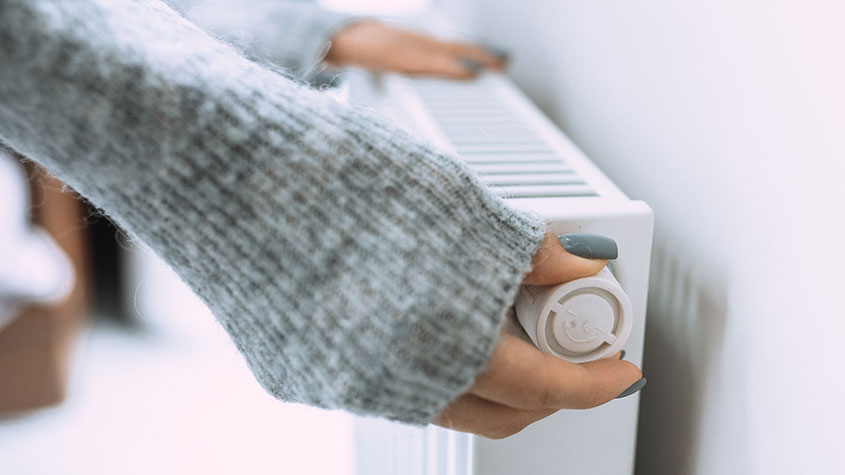14 ways to save on your energy bill
With the price of energy remaining well above pre-pandemic levels, you’ll want to do what you can do to keep your bills low.


Get the latest financial news, insights and expert analysis from our award-winning MoneyWeek team, to help you understand what really matters when it comes to your finances.
You are now subscribed
Your newsletter sign-up was successful
Want to add more newsletters?
The Ofgem energy price cap for the period between 1 January and 31 March marginally rose by 0.2% compared to the previous quarter.
For a typical household on a dual-fuel tariff paying by direct debit, the average annual energy bill will be £1,758 for the first quarter of 2026, although those who use more energy will pay more than this, as the price cap is a cap on unit prices, not your total bill.
But bills are due to fall from April onwards after Ofgem announced the price cap will fall by 7% in the second quarter of 2026.
Try 6 free issues of MoneyWeek today
Get unparalleled financial insight, analysis and expert opinion you can profit from.

Sign up to Money Morning
Don't miss the latest investment and personal finances news, market analysis, plus money-saving tips with our free twice-daily newsletter
Don't miss the latest investment and personal finances news, market analysis, plus money-saving tips with our free twice-daily newsletter
It will bring the average annual bill to around £1,641, with the savings mostly coming from the government’s policy of axing green levies from household energy bills.
However, despite bills being set to fall by £117 in April, the price of energy will still remain much higher than it was before the 2022 energy crisis.
It’s also worth noting that the price cap is on unit prices, not your total bill, so if you use more, you will pay more.
But there are ways you can keep your usage low and reduce costs. Here are 14 energy saving hacks to help you cut your bill.
How to save on your energy bill now
Switch to LED bulbs
LED bulbs use less energy and will save you money in the long run. They cost just a bit more than traditional bulbs – you can get a pack of three LED bulbs from Amazon for around £8.
If the average UK household replaced all of their halogen bulbs with LEDs, it would save about £40 a year on bills, according to the Energy Saving Trust.
Use an energy-efficient shower head
You can cut down on bills by spending less time in the shower; taking four-minute showers could save you £95 a year, according to the Energy Saving Trust.
Using an energy-efficient shower head could further reduce your energy usage. These can cost as little as around £10 and, according to the Energy Saving Trust, this switch could shave £28 off a family of four’s energy bills and around £47 off your water bill per year.
Wash your clothes at a lower temperature
You can save around £27 a year by running your washing machine on a 30-degree cycle, and by reducing your washing loads by just one run per week for a year, according to the Energy Saving Trust
Adjust your boiler to save on energy costs
You can slash around £25 a month off your energy bill by turning your flow temperature down by a few degrees on your boiler – we explain the two boiler tricks everyone needs to know about in our article: two boiler tricks to cut hundreds off your energy bill.
You can also cut costs by turning off your boiler’s preheat function, which ensures hot water is ready to go at all times – you could shave anywhere between 5% to 10% off your energy bill by only turning it on just before you need it.
Bleed your radiators
This may sound obvious, but it’s easily forgotten: making sure you bleed the radiators will keep your house warmer for longer. If there are any cold spots on the radiators while your heating is on, it means air is trapped in the system.
Turn your heating down
You could save as much as £80 a year by turning your thermostat down by just one degree, according to comparison website uSwitch. Experts say the ideal temperature for most healthy people is around 18 degrees.
Draught-proof your home
Draught-proofing around windows and doors could save you around £60 a year, says the Energy Saving Trust. Draught-proofing your chimney could save you an extra £390 a year – this can be done with something as simple as a chimney sheep.
For windows, you can buy draught tape, which can cost less than £10. And for doors, you can also buy door draught excluders that cost around £20.
Turn off lights
The Energy Saving Trust estimates that a typical household could save almost £8 a year by switching off the lights as they leave a room.
Switch off standby
You could save around £45 annually by turning off your appliances in standby mode, either by switching them off at the plug or unplugging them, the Energy Saving Trust estimates.
But before you do, be sure to check the instructions for your appliances, some TV recorders for example, may need to be left plugged in so they can keep track of any programmes you want to record.
Insulate your home
Around 25% of the heat from your house escapes through the roof. You can save up to £130 a year by padding your loft to prevent warmth from escaping. You could also install double or triple glazing on your windows.
Check to see what government grants are on offer. For example, you may be able to get support from the Great British Insulation Scheme.
Insulate your hot water cylinder
Insulating your hot water cylinder, if you have one, could save you £70 a year. By helping keep the water warm, you will use less energy in heating it up.
Andy Simms, renovation expert from MyBuilder.com, comments: “A hot water cylinder jacket is a cheap hack that costs just £20 but can realistically save you hundreds of pounds over the years."
The Energy Saving Trust suggests you use a British Standard Jacket 80mm thick.
Buy a smart thermostat
Investing in a smart thermostat could help you save money over time. These let you control and programme when your heating and hot water are turned on and off, saving you having to do it manually but also ensuring you won’t accidentally forget. You can also change temperatures remotely from your phone when you’re not at home.
Smart thermostats range from around £135 to £200 in price, and there may be installation costs too. But, they could cut your energy costs by between 14% and 31%.
“This means that for the average household they could knock about £560 off your bill in a year,” says Stephen Hankinson, managing director at Electric Radiators Direct. “Factoring in the upfront cost, those who do install these may start seeing some savings after around four months.”
Get a new boiler
This is definitely a more expensive option but worth considering if your boiler is over 10 years old. Repairing one could set you back by as much as £4,000.
At the very least, get your boiler serviced regularly. Simms notes: "The last thing you need when the temperature plummets is to be without heating. Getting your boiler serviced ahead of cold weather ensures you will stay warm, and can prevent more costly issues with our boiler in the future."
Install thermostatic radiator valves (TRVs)
TRVs help control the temperature of a radiator. If you don’t already have them on the side of your radiator, installing them could save you up to £75 a year, according to the Energy Saving Trust. Controlling the heat in your main living space and lowering it in rooms you don’t use as often will help you save money.
More energy-saving tips
If you're wondering whether it's worth buying a heat pump (and maybe solar panels too), or trying to work out the cheapest way to heat your home, we have lots of handy articles for you:
- Wood burning stove or central heating
- Radiator vs electric heater
- Fan heater vs oil heaters
- Solar panels vs heat pumps
- Heated airer vs tumble dryer
This article may contain affiliate links – when you purchase through links on our site, we may earn an affiliate commission.
Get the latest financial news, insights and expert analysis from our award-winning MoneyWeek team, to help you understand what really matters when it comes to your finances.
Nic studied for a BA in journalism at Cardiff University, and has an MA in magazine journalism from City University. She has previously worked for MoneyWeek.
- Ruth EmeryContributing editor
- Daniel HiltonWriter
-
 Do you face ‘double whammy’ inheritance tax blow? How to lessen the impact
Do you face ‘double whammy’ inheritance tax blow? How to lessen the impactFrozen tax thresholds and pensions falling within the scope of inheritance tax will drag thousands more estates into losing their residence nil-rate band, analysis suggests
-
 Has the market misjudged Relx?
Has the market misjudged Relx?Relx shares fell on fears that AI was about to eat its lunch, but the firm remains well placed to thrive
-
 Winter Fuel Payment cut to hit ‘1.5 million’ pensioners - what support does your energy supplier offer?
Winter Fuel Payment cut to hit ‘1.5 million’ pensioners - what support does your energy supplier offer?Advice The Winter Fuel Payment is being scrapped for most pensioners this year. But you may be able to access extra support from your energy supplier. Here’s what’s on offer.
-
 What is the Ofgem energy price cap and what does it mean for your bills?
What is the Ofgem energy price cap and what does it mean for your bills?The Ofgem energy price cap is reviewed every three months. What is its current level and how does it affect bills?
-
 Should you switch to a fixed energy tariff in 2026?
Should you switch to a fixed energy tariff in 2026?As energy prices remain volatile and far above pre-2022 levels, is now the time to look for a fixed energy tariff? We look at the latest gas and electricity deals
-
 Rent prices continue to rise but demand slows as cost of living pressures bite
Rent prices continue to rise but demand slows as cost of living pressures biteNews The latest data from Zoopla shows rental growth is expected to slow to 5% as demand decreases
-
 The best credit cards with 0% on purchases
The best credit cards with 0% on purchasesAdvice 0% credit cards are a great way to spread the cost of big purchases - we flag the best deals available now.
-
 Competition watchdog warns drivers still overcharged on fuel prices
Competition watchdog warns drivers still overcharged on fuel pricesAdvice The competition watchdog has revealed that motorists are still paying too much for fuel, a year after its initial investigation. How can you save on fuel costs?
-
 Wood-burning stove vs central heating ‒ which is cheaper?
Wood-burning stove vs central heating ‒ which is cheaper?Advice After energy costs increased again, we compare wood-burning stove vs central heating to find out which is cheaper for your home
-
 Is it cheaper to leave the heating on low all day?
Is it cheaper to leave the heating on low all day?Advice The weather is getting colder and energy bills are rising, but is it really cheaper to leave the heating on low all day or should you only turn it on when you need it?
